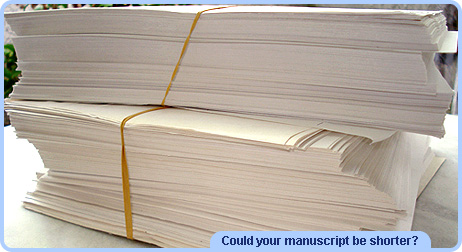To Cut or Eliminate
J.V. Jones
Sept 1st : 2007
|
To Cut or Eliminate
|
|
|
J.V. Jones
|
Sept 1st : 2007
|
|
Dictionaries define the word edit as "to prepare for publication" and "to cut or eliminate". In order to edit one's own work one must learn to do both. The cut or eliminate part can be difficult for beginning writers as we worked so hard over our choice of words; lovingly cataloging all the details of a scene, providing vignettes to disclose our characters back stories, sweating the sentence structure, honing our verbs. It can be very difficult to look dispassionately at our work and ask, "How much of what Iíve written is vital to the story?"  |